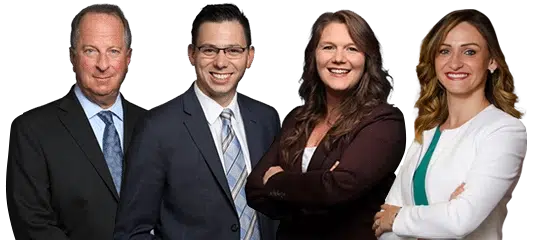1. Personal injury lawsuits seek to compensate the injured person for:
- Past loss of earnings;
- Future loss of earnings that is reasonably certain to occur;
- Past medical expenses that are reasonable, necessary and related to the accident;
- Future medical expenses that are reasonably certain to occur;
- Pain and suffering (past and future); and
- Disfigurement
2. Wrongful death lawsuits seek to compensate the deceased person’s spouse, next of kin and estate for losses such as:
- Funeral and burial expenses;
- Loss of financial support;
- Loss of prospective inheritance;
- In some states, instead of loss of support and prospective inheritance, loss of the deceased’s income;
- Loss of society and companionship; and
- Conscious pain and suffering
3. In some cases, where the fault involved is especially outrageous, damages over and above what will fairly compensate for the harm are allowed to punish the wrongdoer to make an example of him or her and deter similar conduct by others.
4. While there are no guarantees in personal injury and wrongful death litigation, with good experienced counsel and thorough preparation, people have a much better chance of being fully informed and getting the money they deserve under the law.
5. Not every personal injury attorney has the same qualifications, experience and business practices, so it is a good idea to find out:
- How much experience the attorney has.
- The percentage of the attorney’s practice that is dedicated to handling personal injury and wrongful death cases.
- The types of personal injury and wrongful death cases the attorney has successfully settled and tried.
- The courts the attorney is licensed to practice in.
- Who will handle the case on a day-to-day basis, and who will answer questions when the personal injury or wrongful death lawyer is not available.
6. In personal injury and wrongful death cases, clients usually do not have to pay any money upfront to an attorney, and there is no hourly charge. Instead, the attorneys are normally compensated by receiving a percentage of the case. While the percentage can vary depending on case details, a fee of approximately one-third of the recovery is common.
7. A lawsuit takes time to come to a conclusion. Most personal injury and wrongful death cases are resolved more than six months and less than three years after an accident. The sooner one gets started, the sooner the case can be completed. For example, most lawsuits are settled or tried within two years after the lawsuit is filed.
8. Personal injury and wrongful death lawsuits do not directly seek to harm anyone’s reputation.
9. A doctor who is sued will not lose his or her medical license merely because a lawsuit has been filed or won.
10. A lawsuit is not a lottery. This phrase is often used by defense attorneys during jury selection to remind jurors that their job is not simply to allow the injured victim to “hit it big” and award huge amounts of unjustified money.
A more realistic approach to a lawsuit is for reasonable, full and fair compensation to allow an injured person to recover money for all of the harm caused such as all of the past and future expenses, and all of the past and future pain and suffering.
Rapoport Weisberg Sims & VanOverloop P.C. is an Illinois personal injury law firm, representing persons seriously injured and those who have lost loved ones, due to the negligence of others.
Contact Rapoport Weisberg Sims & VanOverloop P.C., for further information about legal services. There is no fee to consult with one of our attorneys. The fee for our services is solely based on a percentage of the amount we recover for our client. No fee is charged unless there is a recovery.

